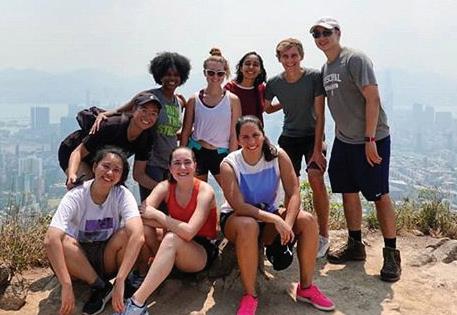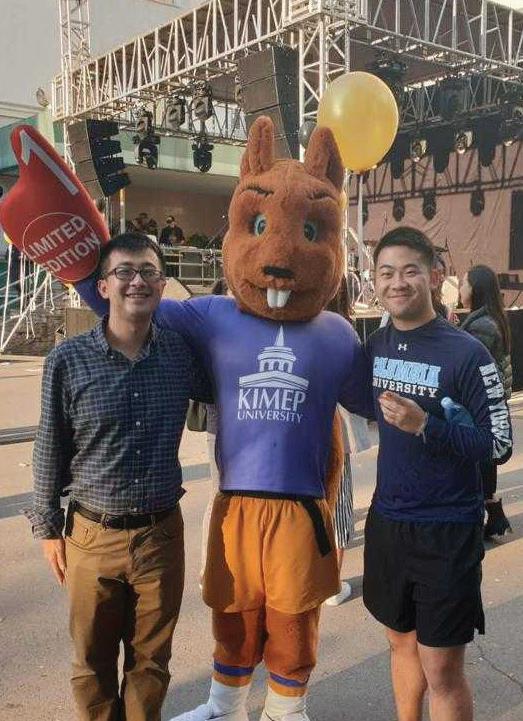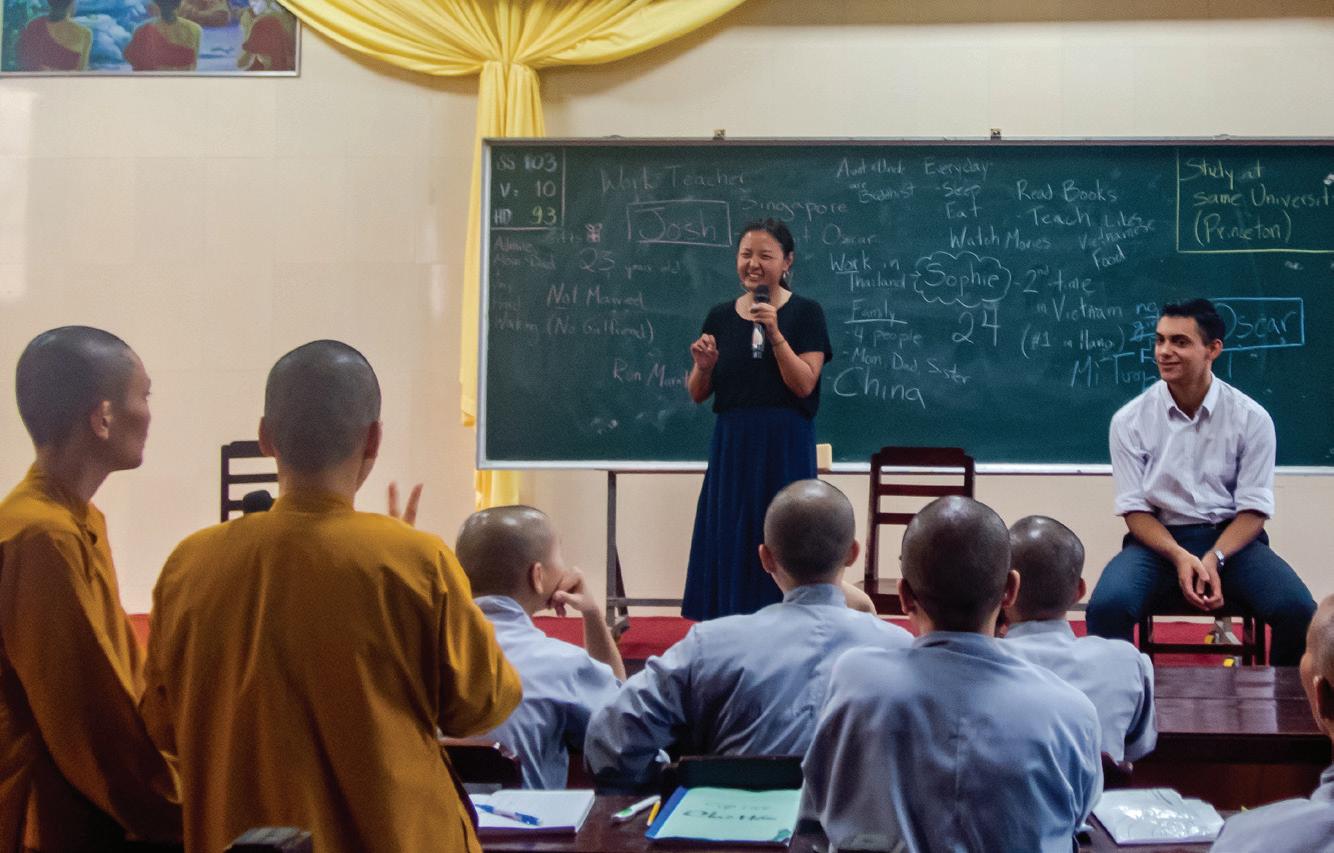
4 minute read
VOICES FROM THE FIELD
REFLECTIONS & PHOTOS FROM PiA FELLOWS IN THE FIELD


“Maybe around a month or so ago, some neighborhood kids came up to me and asked if they could come over to have English lessons. I was really impressed that a bunch of nine-year-olds were asking for help studying (I don’t remember being that gung-ho at that age) so I said sure, come on over and bring your schoolwork, which it turns out that they didn’t have. The initial batch that came over was five kids--the next time it was 15, then 20, and now twice a week after work I have anywhere from seven to thirty kids (ages around three to twelve, I’d guess) rocketing around my living room for an hour and change. This definitely wasn’t what I’d planned for, but they’re super great kids, generally really well-behaved, quick, and motivated!”
“Though the purpose of my trip to Jishou was to give the students a chance to interact with native English speakers, I ended up benefiting more from my students than them from me. One student, Joy, wrote a speech at the end of the program about her failing the national examination, and as a result, attending Jishou Normal. Despite this setback, she didn’t give up, losing sleep to achieve her dreams of becoming an English teacher. In the end, she succeeded in getting first place in her class for four consecutive semesters. Her speech alone inspired me to better myself as a person. Her passion for English and hard work made me rethink my desired career path and reflect on my own reasons for choosing to come to Princeton.”
“The incredible thing about this fellowship is that it’s unlike anything I’ll ever get to experience: for the first time, my life doesn’t and shouldn’t revolve around me and what I want. I have the next 30 years of my life to think about me and make life work for me. But for this year, I am serving not just the students in the school, but also the organization. I had to change my mindset. For example, if they wanted me to file papers, I was going to file paper more quickly and more efficiently than they’ve ever had them filed. If they wanted me to laminate… I was going to be the best laminator they’ve ever seen. As soon as I embraced this new approach to my daily tasks, some really big projects landed on my table like Zhixing, getting to coach Track and Field, and helping run the Peer Mentorship program. I’ve been getting more exposure to the students as time goes on and it has all been in the most organic way – things have turned out better than I could have planned so I’m glad I could let go of my own expectations and let life lead the way for me.
McKay Novak, YK Pao School Songjiang, China
“Some two months ago, our podcast became rather popular (a Korean friend of mine who is currently learning English actually found our podcast in an app designed to facilitate Koreans’ learning of English: she was very confused when she heard my voice), and so the four of us had an informal meeting of sorts wherein we discussed ways we could step up our game to meet our listeners’ discerning palate. In the end, we decided to do fewer political stories and increase the number of cultural or non-governmental, yet topical, stories, many of which are longer than their front-page ilk. This moment was engaging for myself and Holly since we’re both copy editors and are rarely ever consulted on these matters — yet Mooyoung and Taegyu valued our input on the subject. While the meetings resulted in more work for the two of us, we were happy to shoulder the burden since it meant that we could produce a podcast of better quality and we were part of the decision that led there.”
Liam Reilly, The Korea JoongAng Daily Seoul, South Korea
1: The Mongolia Fellows take an outdoor adventure, as the Mongolia Fellows are prone to do; 2: Hong Kong Fellows on a hike; 3: KIMEP Fellows with the new school mascot, Boris the squirrel!; 4: Inside the classroom at the Tushita Foundation photo captions:

“I’ve been given the privilege this semester of teaching a group of nuns and monks at a nearby pagoda, on Sundays. The class is composed of around 25 people. And although my focus is on helping them improve their English, it’s also an opportunity for giving the monks and nuns time to interact with someone from outside the pagoda. These monks and nuns are not allowed to leave the pagoda, even to buy essentials or personal items. It’s super nice for them, as a result, when they have a friend visit. So far I’ve taught three classes, and although I’m very respectful and polite as one should be at a pagoda and in the presence of nuns and monks, I love throwing in youthful enthusiasm, humor, and lightheartedness into my lessons. Seeing them laugh and smile is like nothing on Earth. And hearing them pronounce things perfectly, or hearing them master and employ things I’ve taught them in prior classes, gladdens my heart like nothing else.
Since there is a range of abilities in this little group— with a few competent speakers and several who are very much beginners—I started right at the beginning. With the “Trina show”. (If you’re reading this, and you don’t know who Trina is—go ask someone. Do yourself a favor). I teach almost purely through visual cues and gestures. The first class covered introductions and colors. In the second class, I introduced the distinction between “that” and “this”, then added “these” and “those”. I build on this foundation each time—by now everyone feels comfortable speaking about things they see in the room and on their desks, and next class they’ll be ready to conjugate verbs.
For me, what’s most important is helping them experience the pleasure of communicating with another human in another language—even if that’s just to say “that is green” or “these are blue”! But at the heart of this class is an even greater pleasure, and that’s the pleasure of sharing a friendly hour with a friendly face you don’t often get to see. I’ve gone to teach these classes during what has been without a doubt the hardest month of my life here and during a difficult time in my life, emotionally. Putting on a










